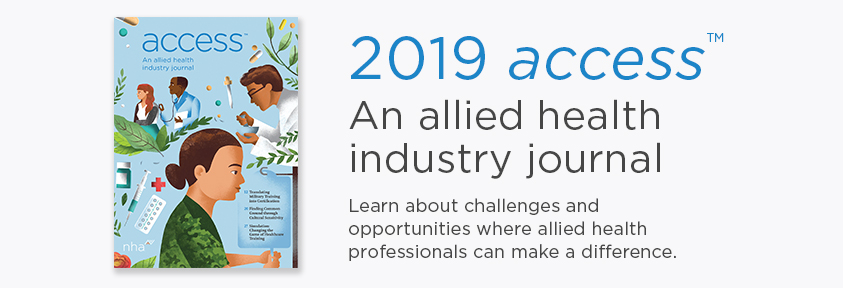Learn how health coaching can help change patients’ perspectives around influenza vaccination
Every year, the influenza vaccine becomes a hot topic for both patients and clinicians – but often for different reasons. Many patients believe what studies show are myths and avoid getting the vaccine. Clinicians, on the other hand, see the impact that the influenza vaccine has in preventing illness, hospitalization and even mortality. The real issue is that it’s hard to change peoples’ minds about vaccines once they are made up. That’s where health coaching can make a major impact.
Not all primary care practices have health coaches on staff, but every practice can utilize the foundational skills of health coaching, such as motivational interviewing, to help influence patients’ opinions about and decisions to get an influenza vaccination.
Flu Shots Do More than Prevent Flu
In a primary care setting, clinicians focus on preventing and managing chronic disease. With 60% of adults in the US now suffering from a chronic disease, the influenza vaccination is a critical component of keeping these patients healthy.
While most people believe that this annual vaccine is solely for preventing the flu, the reality is that it can prevent far more adverse events.
- In multiple studies, adults were six to 10 times more likely to suffer from a first heart attack in the first week after lab-confirmed influenza virus infection. They were also more likely to suffer a first stroke in the first 3 days after infection.
- After influenza infection, people with diabetes are at three times greater risk of hospitalization, four times greater risk for ICU admission and two times greater risk of death.
Studies point to the efficacy of the influenza vaccine in helping to prevent heart attacks. In fact, it may be as or more effective than many other well-known therapies and interventions:
| Coronary Intervention | Effectiveness Against Heart Attack |
| Smoking cessation | 32% to 43% |
| Statins | 19% to 30% |
| Antihypertensive drugs | 17% to 25% |
| Influenza vaccines | 15% to 45% |
In a study of patients with type 2 diabetes, the influenza vaccine significantly reduced reductions in stroke by 30%, all-cause death by 24%, heart failure by 22%, and pneumonia or influenza by 15%.
Busting myths through motivational interviewing
There are a number of myths that continue to surface when it comes to the flu vaccine. Here are some of the most common myths you may hear from patients in the coming weeks and months:
- The flu isn’t a big deal, so I don’t need a vaccine.
- The flu vaccine will make me sick.
- The flu vaccine doesn’t work very often.
- I never had one before, and I never got the flu. Why would I need one now?
When it comes to changing perceptions of the influenza vaccine, getting to the real reason why the patient is against the vaccine may help you encourage a change in their opinion. That’s where health coaching skills, including motivational interviewing, come into play. One motivational interviewing technique that can be put into practice is called OARS. This technique employs:
- Open-ended questions: when asking patients questions, try framing them in a way that cannot be answered with a simple “yes” or “no”. The goal is to have these questions open up conversation.
- Affirmations: acknowledge a patient’s strengths and behaviors that lead in a direction of positive change.
- Reflections: After listening closely to your patient, verbally reflect what you heard by repeating or paraphrasing, and try to reflect on the emotions communicated from the patient with empathy.
- Summaries: By providing a summary of the conversation, you can check that you understand the patient’s goals and preferences and confirm that the patient understands his or her care plan.
Putting OARS into practice
The following conversation is an example of an exchange between a clinician, such as a nurse or medical assistant, and diabetic patient after being asked if he would like to get the flu vaccine. Read how the clinician incorporates the OARS motivational interviewing technique into the conversation.
Patient: No, I don’t want the flu shot, it gives you the flu.
Clinician: Can you tell me about previous reactions you’ve experienced after receiving the flu vaccine? (Open-Ended Question)
Patient: I get really achy and feverish.
Clinician: What other symptoms do you experience? (Open-Ended Question)
Patient: Well, I get a little cranky… but my wife would argue that I am always cranky.
Clinician: Do you mind if I share some information with you?
Patient: No, please do.
Clinician: Many people think that the symptoms they experience following a flu vaccine are actually the flu, but the symptoms you experience following the flu vaccine is just your body’s immune system doing what it is supposed to do, building up an army of antibodies to protect you when you are exposed to the flu.
Patient: No one has ever explained it that way to me. Well our bodies are pretty remarkable, aren’t they?
Clinician: Yes, it sure is.
Patient: You know, I really do want to keep myself as healthy as I can, especially since I already have diabetes. Go ahead and give me the flu shot. Maybe next visit, I can get that Shingles vaccine the doctor mentioned.
Clinician: Good for you for going the extra mile to keep yourself healthy. (Affirmation)
Patient: That’s me, “Mr. Healthy”.
Clinician: So just to confirm, what I hear you saying is that taking care of your health is important to you, especially since you have diabetes. (Reflection)
Patient: That’s correct.
Clinician: And to summarize, you want the flu vaccine today and during your next visit you want to get the Shingles vaccine. Is that correct? (Summary)
Patient: That’s right, flu vaccine today and Shingles vaccine the next visit.
Training patient-facing clinicians to use health coaching skills gives them an opportunity to grow in their role. Most importantly, building clinicians’ foundational skill set for health coaching can truly make a difference when it comes to keeping patients healthy all year, and especially during flu season, when one simple vaccination can truly save lives.
 Michelle Heller is the allied health content strategist at National Healthcareer Association. She is a certified medical assistant and has worked in a variety of professional medical office settings, including as an office manager for a six-clinician practice. Heller also served as the director of education and the medical assisting program director for Ohio Institute of Health Careers. She has published a number of textbooks and continues to produce continuing education content for allied health professionals.
Michelle Heller is the allied health content strategist at National Healthcareer Association. She is a certified medical assistant and has worked in a variety of professional medical office settings, including as an office manager for a six-clinician practice. Heller also served as the director of education and the medical assisting program director for Ohio Institute of Health Careers. She has published a number of textbooks and continues to produce continuing education content for allied health professionals.




